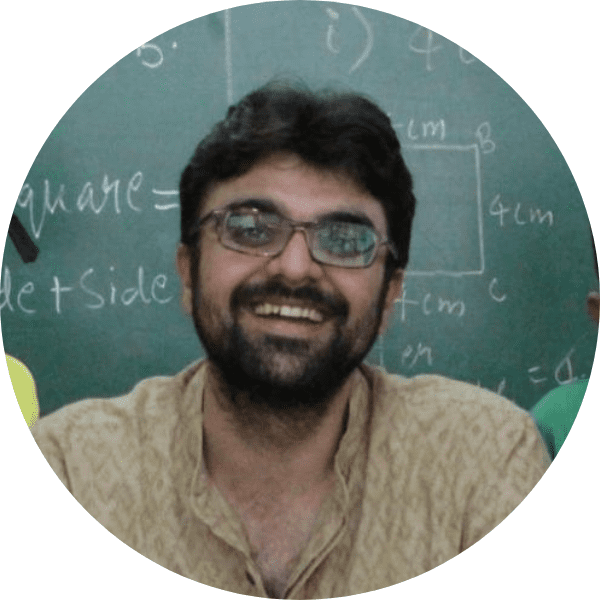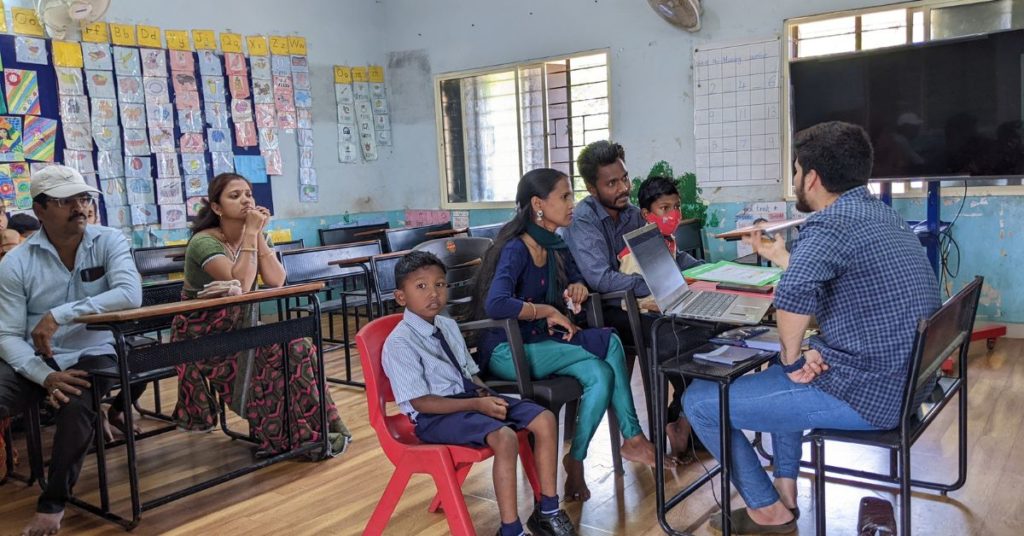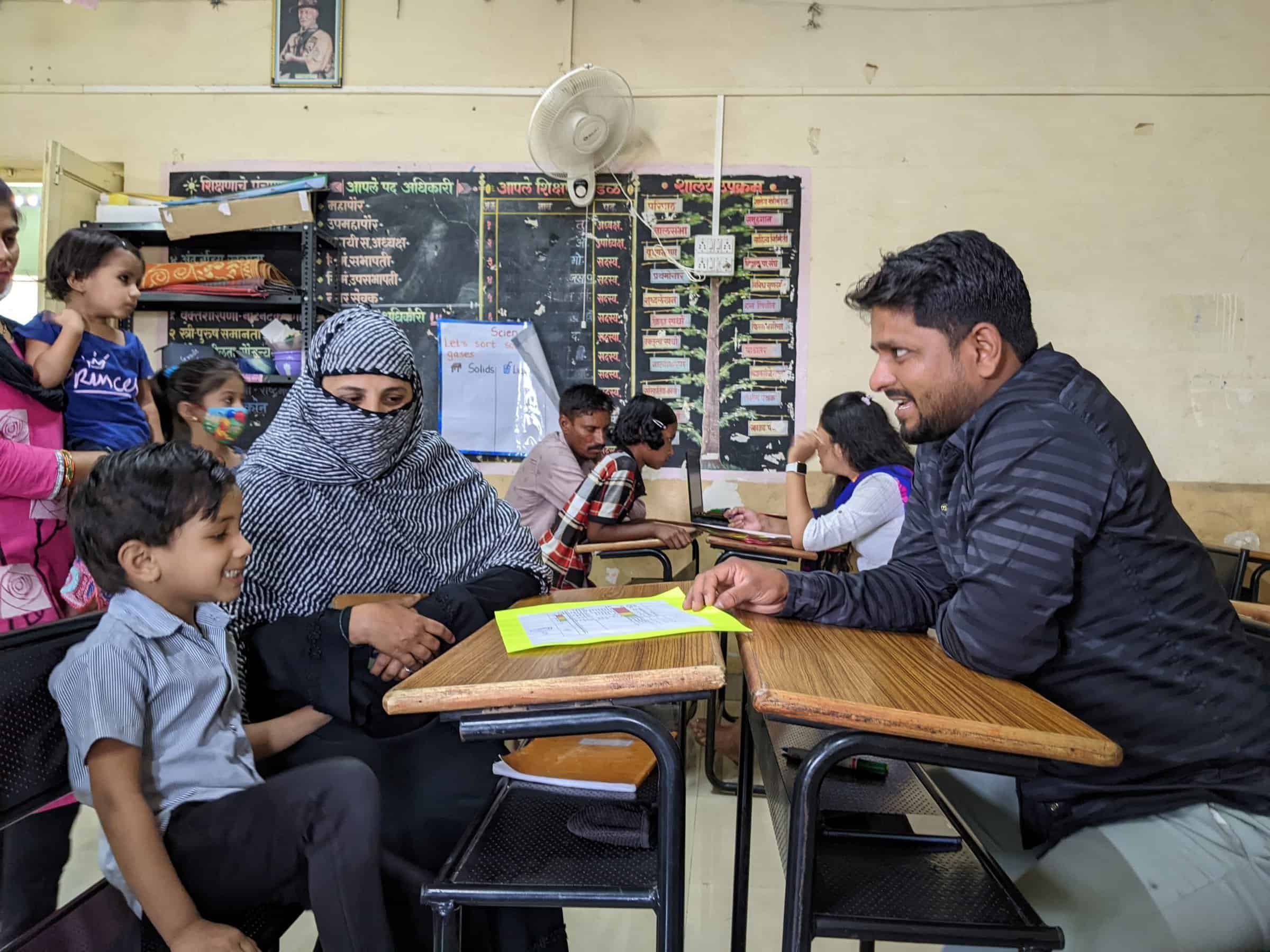4 min read
India is facing a learning crisis. According to a 2019 World Bank report, 55% of 10-year-olds in India are unable to read and understand simple text. The crisis has further deepened post-pandemic, with this figure now at an estimated 70%.
Like in many parts of the world, in India too, private schools are perceived as providing quality education. But because they charge a fee for enrolment, they lock out socio-economically weaker and disadvantaged families. These families rely on the education provided by public schools, which is, more often than not, lacking in many ways. Therefore, families that need the benefits of quality education are most likely to be denied them. For an emerging economy like India, the stratification of its education system on the basis of access and quality further deepens inequities.
The challenge of this widening gap can be addressed through excellent schools that prove that children from underserved communities can perform at par or even better than children from privileged backgrounds when provided with a high-quality education and the right kind of support.
The Best of Private and Public Sectors
One way to achieve this is through the coming together of stakeholders across the private and public sectors. India’s latest National Education Policy mentions the Public-Private Partnership (PPP) model as a credible way to realize the country’s literacy goals.
The Akanksha Foundation, which was started with the simple idea of providing every child with a high-quality education, runs 26 schools across three cities in Maharashtra under the PPP model. While the local government bodies provide the necessary infrastructure and materials, Akanksha hires and trains educators and designs innovative curricula and pedagogy, and corporate partners play a key role in supporting the schools financially to serve the children with zero fees. Our results over the last few years indicate that we are on the right track – our learning outcomes are higher than other government schools and at par with a few top private schools. Many of our alumni have gained admission in top universities in India and the US. 95% of our alumni continue their education beyond Grade 10 as compared to a national average of 56%.
Going Beyond the Classrooms
Our experience has taught us that if children from disadvantaged backgrounds need to be global citizens, success in the classroom isn’t enough. Students need holistic development armed with socio-emotional learning and digital skills. Our student vision is built on the 4Cs of 21st-century learning: Critical Thinking, Communication, Collaboration, and Creativity. Akanksha has added another C – Compassion.
One of the most important factors for our success has been partnering with parents and the larger communities that the students are part of. Studies show that family engagement has a significant correlation with a child’s life outcomes. When families are engaged in their children’s school lives, students have the support they need for learning success.
One of our recent parent and community engagement success stories comes from Bopkhel in India the state of Maharashtra. Located in the outskirts of the city of Pune, the English Medium School, run by Akanksha, is the only public school in the area that offers education in English. The parents are mainly daily wage earners, auto drivers or construction site workers and most students are first-generation learners. The houses are small, and most of the community uses public toilets and has limited access to basic facilities like water and electricity. In these conditions, the environment in the community is hardly conducive to learning.
Parents as Partners in Education
To help parents understand what their children need to excel at school, we engage with them through a number of initiatives like parent meetings, home visits, playgroup clusters, and open forums. As a result of these initiatives, the parents’ trust in the school has strengthened over the years—they not only share their concerns freely with the school staff but also leverage their strengths to help out with activities in the school. For example, some parents help a teacher run a club, others create displays for the classrooms, and a few ensure that the children are getting nutritious food in their lunch boxes.
Collaborating with parents has helped in providing students with a more relevant learning process, which has resulted in higher engagement levels. The community’s faith in the school is also reflected in the admission numbers—in the last few years, applications for admissions received have been more than twice the number of seats.
Our efforts in engaging with parents and the larger community were recognised by T4 Education, a UK-based organization, that shortlisted PCMC English Medium School Bopkhel as one of the top-10 schools in the world in the Community Collaboration category. As we go into print, we are waiting to see if we make it to the top-3.
While we celebrate our successes, we are also acutely aware of the work that lies ahead of us. The last two years have been extremely challenging for the education sector, with the pandemic exacerbating the learning gaps that already existed. The need of the hour is to invest in the public-school system that can serve economically backward communities, especially post-pandemic, with many families still grappling with unemployment. Free school education can offer parents from such communities considerable financial relief and allow children to continue their education without gaps.
As we look to build for the future, we will lean on our past experiences to guide us. We will continue to follow best-in-class practices—in training educators, working closely with the government, and partnering with parents and donors—to fulfill our vision of providing high-quality education to every child.



















